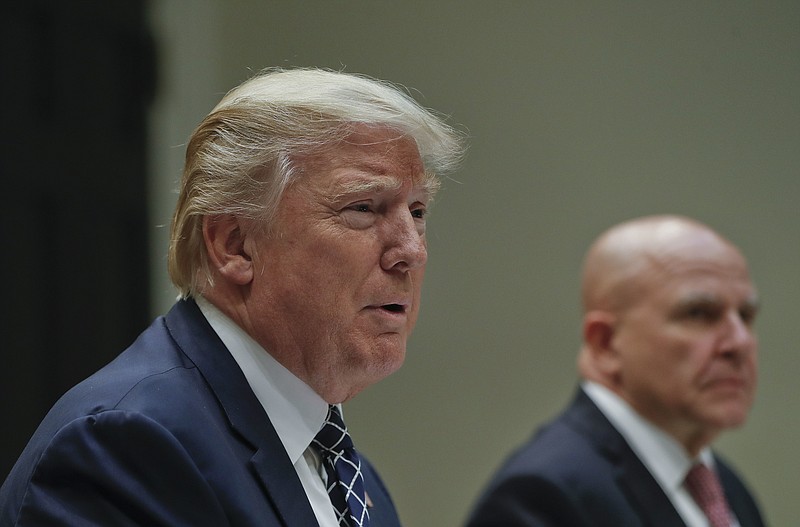WASHINGTON (AP) - President Donald Trump was eager to declare Iran in breach of the nuclear deal but was talked out of it by national security aides who rushed to the Oval Office to persuade him as a midnight deadline approached, administration officials said.
Trump agreed Monday night to let the issue go, but only for a few more months - and only after last-minute changes to distance Trump further from the deal.
Rather than say, as planned, Iran was living up to its end of the deal, Trump's aides found a way to let the deal continue for now without technically confirming Iran is complying. The administration followed up the announcement with new, non-nuclear sanctions on Iranians on Tuesday to show Trump is indeed serious about confronting Tehran.
The compromise, relayed to Congress in the final few hours before the deadline, lets Iran continue enjoying relief - for now - from nuclear sanctions lifted as part of the 2015 deal. It also gives Trump some cover to declare publicly Iran is violating "the spirit" of the deal, preserving a potent argument should he ultimately decide to exit the pact.
The deadline comes up again in three months. Given Trump's strong reluctance to certify Iran's compliance, it's highly unlikely he will agree to do it again, officials and others familiar with Trump's Iran policy said. The individuals weren't authorized to comment publicly and requested anonymity.
Coupled with the new sanctions, the move raised optimism among critics of the deal that Trump's broader Iran review, expected to conclude in the next few weeks, will mark a major shift in the U.S. approach to the Islamic Republic.
"What that really foreshadows is once the policy review is done, we're going to see a massive increase in pressure - not just sanctions pressure but using all instruments of American power," said Mark Dubowitz, who runs the hawkish Foundation for Defense of Democracies and has advised the administration on Iran.
The drama came to a head Monday when Trump abruptly put the certification on hold, even as his administration had already started announcing it.
Top advisers scurried to the White House, with Secretary of State Rex Tillerson, Defense Secretary Jim Mattis and national security adviser H.R. McMaster urging Trump to preserve the status quo - at least until the Iran review is completed and a new U.S policy ready to be unveiled. Steve Bannon, Trump's chief strategist and an avowed critic of the deal, and CIA Director Mike Pompeo urged Trump to change course and say Iran wasn't complying, several individuals briefed on the meeting said.
The argument that ultimately won out: Letting Iran keeps its sanctions relief - thus fulfilling U.S. obligations under the deal - without using the word "complying." Trump and other critics have pointed to minor infractions by Tehran to say it's in violation of restrictions on its nuclear development, although the International Atomic Energy Agency that monitors the deal says Iran is broadly complying.
The compromise led to a last-minute shift in the language Trump's administration employed to describe its actions on the Iran deal.
In an original version of a public statement, prepared by the administration in advance of Monday's announcement and obtained by the Associated Press, the State Department planned to say the U.S. "is certifying Iran's continued compliance with the JCPOA" - an acronym for the nuclear deal - "while noting Iran's continued malign activities outside the nuclear issue."

